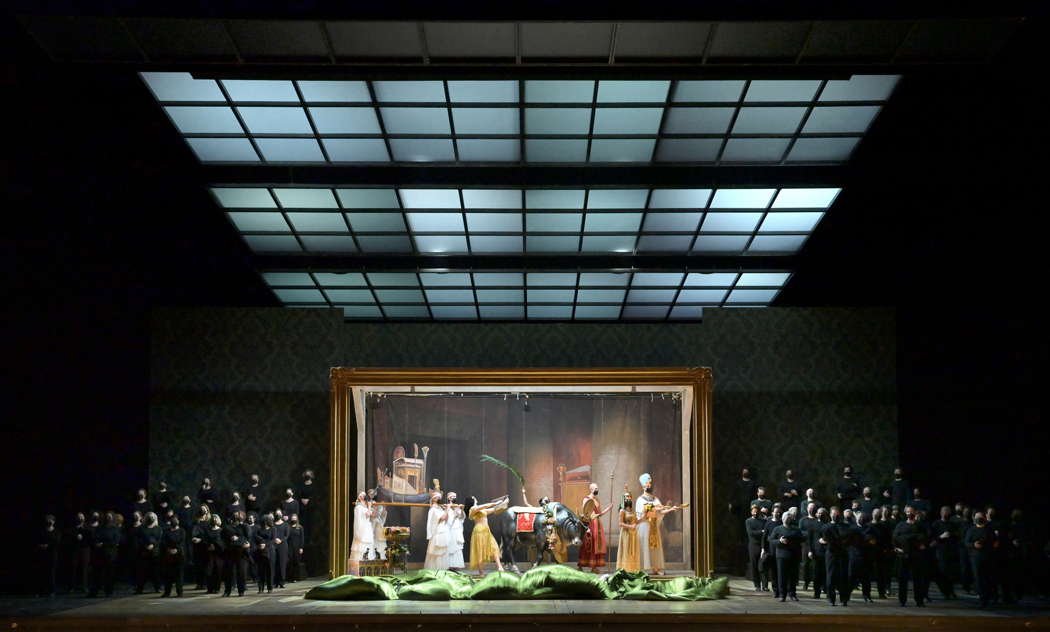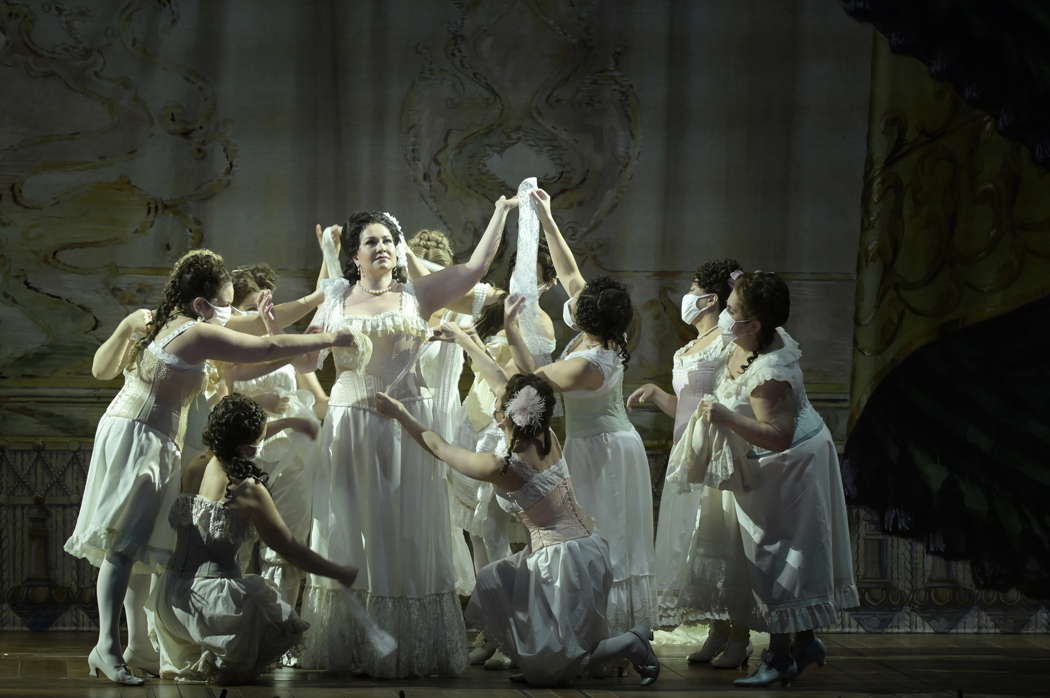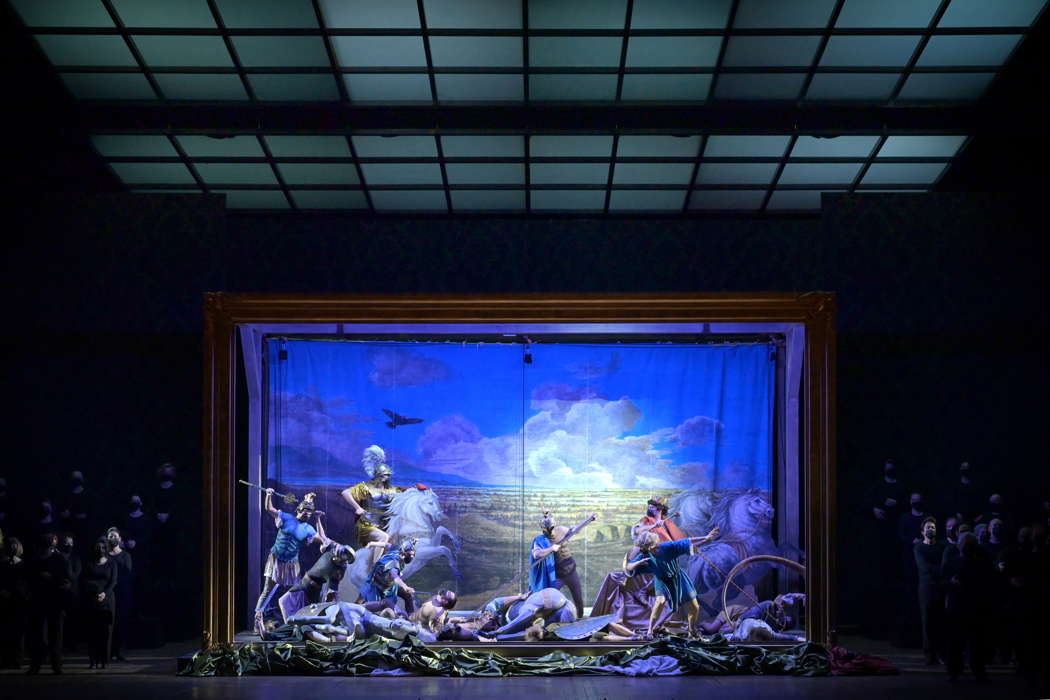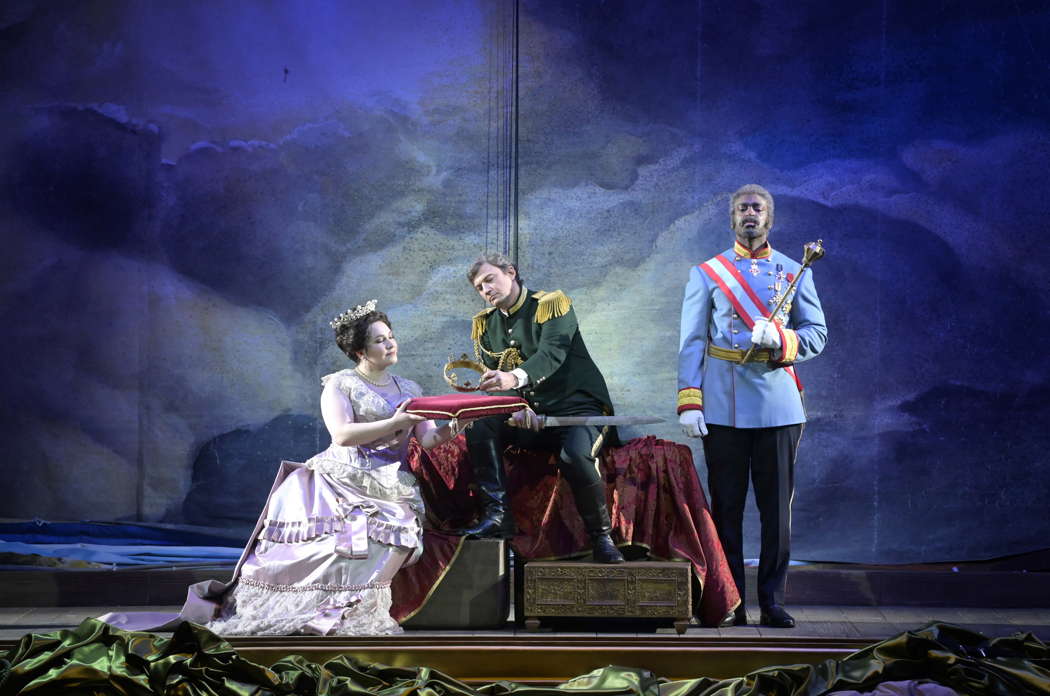 CENTRAL ENGLAND: Mike Wheeler's concert reviews from Nottingham and Derbyshire feature high profile artists on the UK circuit - often quite early on their tours.
CENTRAL ENGLAND: Mike Wheeler's concert reviews from Nottingham and Derbyshire feature high profile artists on the UK circuit - often quite early on their tours.
 ASK ALICE: Weekly, from 2003 until 2016/17, Alice McVeigh took on the role of classical music's agony aunt to answer questions on a surprising variety of subjects.
ASK ALICE: Weekly, from 2003 until 2016/17, Alice McVeigh took on the role of classical music's agony aunt to answer questions on a surprising variety of subjects.
Mixed Feelings
GIUSEPPE PENNISI reviews the new Opéra de Paris production of 'Aida'
On 18 February 2021, after seeing and listening to the new Opéra de Paris production of Verdi's Aida, I was left with mixed feelings. Several years ago, a Texan friend of mine told me the exact meaning of the colloquial 'mixed feelings': the sense one has when he sees mother-in-law driving his brand new Mercedes near a cliff. In the production, the brand new Mercedes was the musical part, while mother-in-law driving near a cliff was the dramatic and visual production.

A scene from the Opéra de Paris production of Verdi's Aida. Photo © 2021 Vincent Pontet
I had access to this Aida from Rome due to a special arrangement between Opéra de Parìs and the Italian National Association of Music Critics. In about a month, the production will be shown on the French-German music TV channel Arte. The production was much awaited for its sterling cast and the debut of stage director Lotte de Beer in Paris. Ms Lotte de Beer made a name for herself for her innovative low-cost productions in the Netherlands and is now the director of the Volksoper in Vienna.

Ksenia Dudnikova as Amneris with dancers in Act II Scene 1 of the Opéra de Paris production of Verdi's Aida. Photo © 2021 Vincent Pontet
Her production of Aida is not low-cost at all. The basic idea is not bad. The plot is set in about 1871, when the opera had its debut in Cairo and deals with colonialism: the Egyptians are the colonial power and the Ethiopians their poor subjects. The staging is, however, unduly complicated. Aida and Amonasro are near life-size puppets like in the Japanese Banruko theatre; three puppeteers handle them and the singers, Sondra Radvanovsky and Ludovic Tézier, are in black pajamas and sing behind them. In the triumph scene, where a ballet is required, there no dances, even though the Opéra de Paris has a splendid corps de ballet. Instead, there are a series of tableaux vivants: Radamès as Napoleon riding a horse - as in Jacques-Louis David's portrait, the US Iwo Jima Memorial, Constantine's Ponte Milvio Battle and alike. Whilst the libretto and Verdi's music clearly alternate dark nights and sunny days in the seven scenes of the opera, the staging seems to be always in daylight, but in the tomb scene. There, however, the two singers are in a very crowded sepulchre with puppets and, I presume, ghosts, due to the presence of extras who disturb the final engrossing love duet. I felt the staging to be an unmitigated flop and hope Paris Opéra will put it in storage.

A scene from the Opéra de Paris production of Verdi's Aida. Photo © 2021 Vincent Pontet
The musical part was quite different. The conductor, Michele Mariotti, delved into the most innovative aspects of a score that can be considered Verdi's most Wagnerian opera: the interwoven leitmotives from the splended string introduction, the symphonic-like orchestral accompaniment, the limited presence of musical numbers. In the cast, Jonas Kaufmann was a superb Radamès right from his entry aria to the final duet. His legato and his F are enthralling. His Aida was Sondra Radvanovsky, compelled to sing behind a puppet; she rendered much better in her recent performance of Bellini's Il Pirata in Naples - read An Opera for Voices, 7 February 2021. Ksenia Dudnikova was a powerful Amneris with a round stunning voice. Ludovic Tézier (as Amonasro) has gained a few pounds since I last saw and heard him at La Scala and had to sing behing a puppet; nonetheless, he fared quite well. Soloman Howard was a statuary King and Dmitry Belosselskiy a subtle Ranfis in the attire of a nineteenth century business tycoon - maybe for the Suez Canal.

Jonas Kaufmann as Radames, Ksenia Dudnikova as Amneris and Soloman Howard as the King in Act II Scene 2 of the Opéra de Paris production of Verdi's Aida. Photo © 2021 Vincent Pontet
I wish I had listened to the performance on the radio.
Copyright © 20 February 2021
Giuseppe Pennisi,
Rome, Italy

FURTHER LIVE CONCERT AND OPERA REVIEWS


